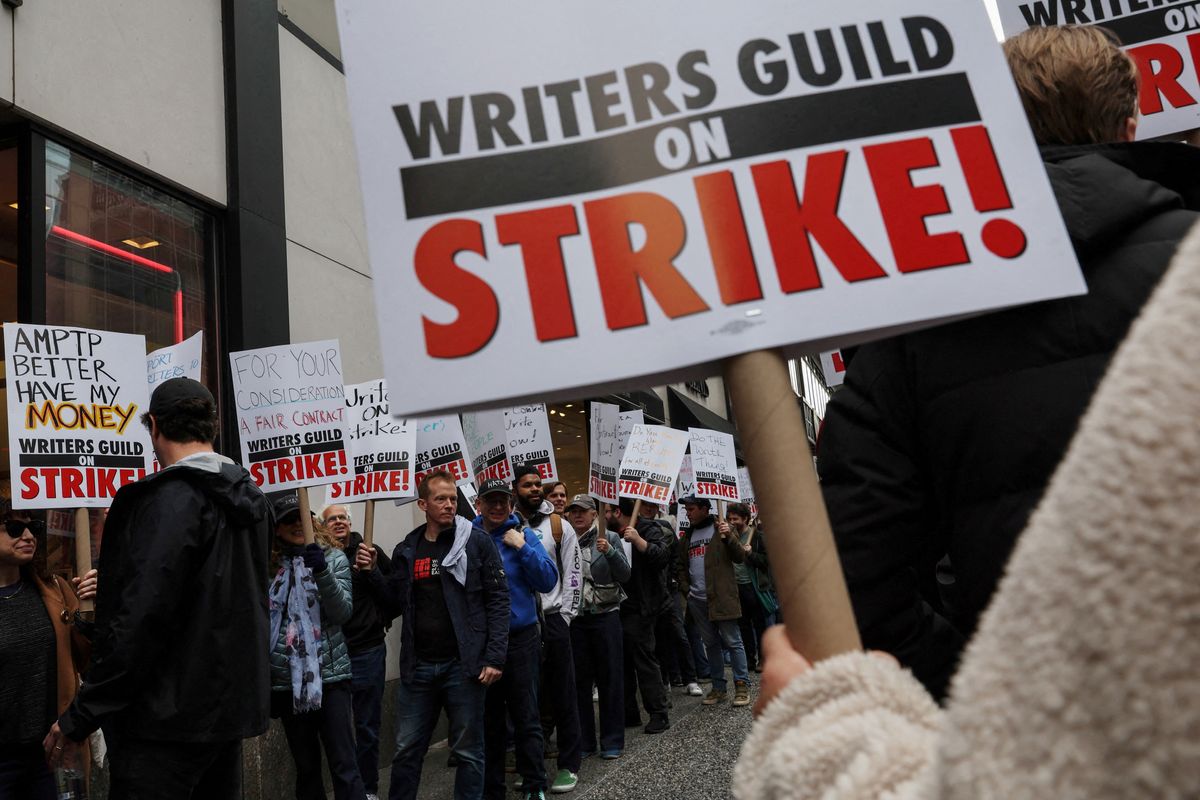What you need to know about the WGA writers strike
The WGA is the Writers Guild of America, and it represents about 11,500 people involved in writing all kinds of movies and TV shows.

A few minutes every morning is all you need.
Stay up to date on the world's Headlines and Human Stories. It's fun, it's factual, it's fluff-free.
The backstory: The WGA is the Writers Guild of America, and it represents about 11,500 people involved in writing all kinds of movies and TV shows. Back in 2007/2008, the WGA went on strike, with writers refusing to work for 100 days. This cost the LA economy an estimated US$2 billion. At the time, popular shows like “The Big Bang Theory,” “The Office” and “The Simpsons” had to make up for the lack of material by running shorter seasons. Other blockbuster shows like “Battlestar Galactica” and “Entourage” postponed their seasons altogether, and a couple of shows were completely canceled. This is also around the time that we started seeing a boom in reality TV because, well, you don’t need anyone to write for an unscripted show.
More recently: For the past six weeks, the WGA has been trying to negotiate with the Alliance of Motion Picture and Television Producers (AMPTP) when it comes to working conditions and pay. One of the major issues here is streaming and the residuals that writers get from it – or, really, the residuals they aren’t getting.
With the streaming boom, writers say they’re dealing with shorter TV seasons and smaller residual payments because of a lack of advertising on these platforms. According to the WGA, half of TV series writers work at minimum salary levels, compared to a third in the 2013-14 TV season. On top of that, the WGA wants to put safeguards on AI use so studios can’t use it to create new scripts from writers' previous work and so writers don’t have to work on AI draft scripts.
The development: On Monday, the WGA said the decision to strike got unanimous approval from its leadership, with studios’ responses to the negotiations just not cutting it. During the announcement, the WGA also accused studios of “stonewalling” the discussion on topics like AI in screenplay production.
But, the AMPTP says it offered writers a significant compensation increase and improvements in residual payments for streaming shows. The organization also said that it would improve the offer, but the WGA is asking for too much.
On Tuesday in the US, we started seeing the union and its supporters at the picket line. The first shows affected will be late-night talk shows, which depend on scripts written the day-of broadcasting. Several popular shows like "Jimmy Kimmel Live" and "The Tonight Show Starring Jimmy Fallon" are expected to start airing reruns in the meantime.
Key comments:
“Though we negotiated intent on making a fair deal — and though your strike vote gave us the leverage to make some gains — the studios’ responses to our proposals have been wholly insufficient, given the existential crisis writers are facing,” the negotiating committee wrote to its members. “The companies’ behavior has created a gig economy inside a union workforce, and their immovable stance in this negotiation has betrayed a commitment to further devaluing the profession of writing.”
“It is important to note that AI software does not create anything. It generates a regurgitation of what it’s fed,” the WGA said in a statement.
“The AMPTP presented a comprehensive package proposal to the Guild last night which included generous increases in compensation for writers as well as improvements in streaming residuals,” the AMPTP said in a statement Monday night. “The AMPTP also indicated to the WGA that it is prepared to improve that offer, but was unwilling to do so because of the magnitude of other proposals still on the table that the Guild continues to insist upon.




Comments ()